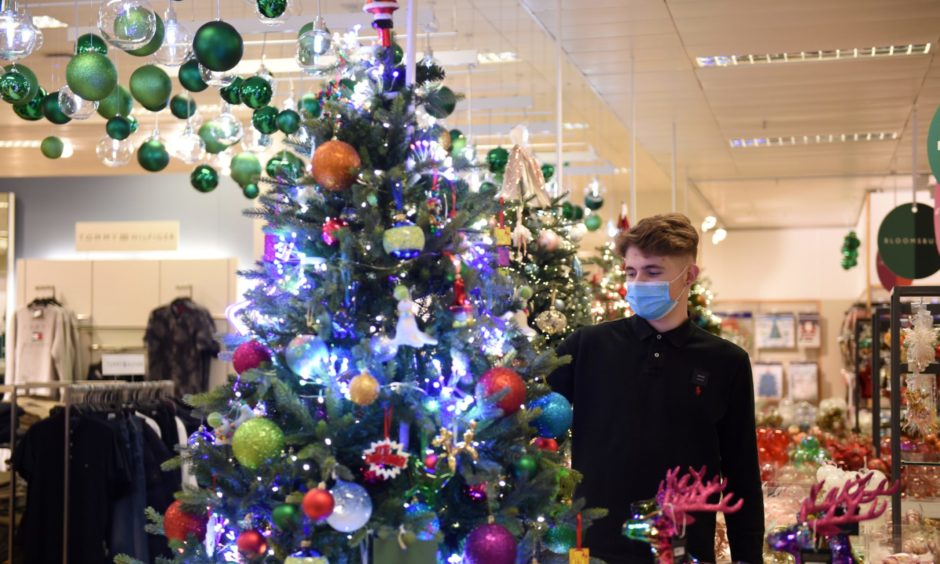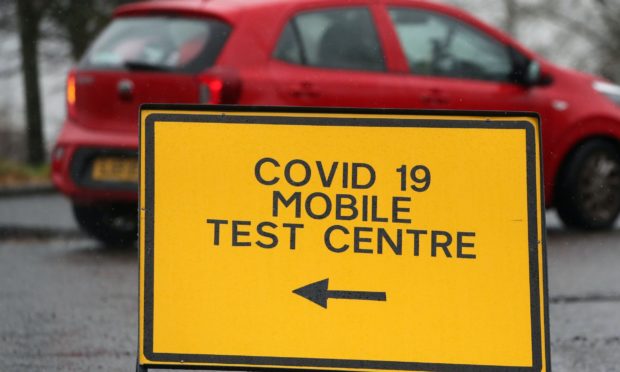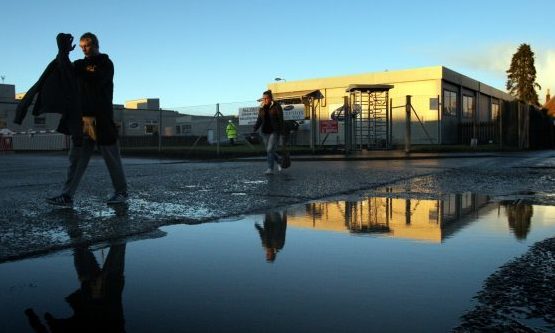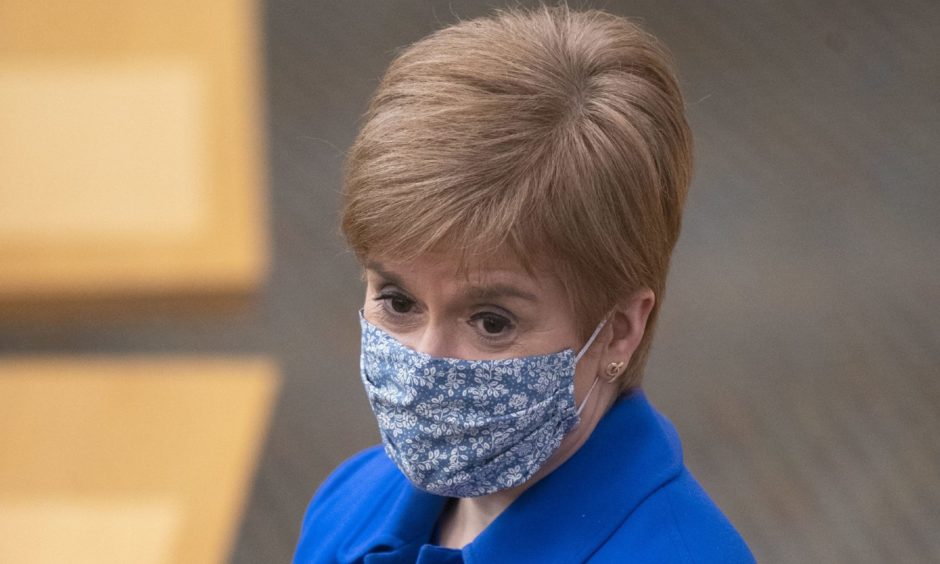First Minister Nicola Sturgeon said she would not rule out “hyper-localised” lockdowns in future but admitted it would be difficult to maintain.
Her comments come after business leaders, scientists and politicians pleaded for areas like Aberdeenshire not to be sent into level three, asking instead for certain “hot spot” areas to be moved up a restriction level only and allowing less affected areas to remain relatively open.
Before the latest tier system came into full effect, similar measures were put in place at a Coupar Angus chicken processing plant, 2 Sisters, after an outbreak.
Renowned microbiologist Hugh Pennington noted the smaller outbreaks in the local authority area were mainly confined to fish processing plants in a situation similar to the one in Perthshire.
The next restriction review will take place in the Scottish Parliament on Tuesday afternoon.
Will not ‘rule it out’
While failing to confirm if Tuesday’s lockdown review would consider the “hyper localisation” model, Ms Sturgeon did say they would move from a “one-size-fits-all” approach when they can.
She said: “We have always said we would never rule out… or be completely against having tiers or levels applying at different parts of a local authority, but we have to be careful about that.
“I think the level system, for as long as we can have a situation where we don’t have to have a one-size-fits all across the country we should try to do that.
“The further down we go geographically, the more difficult it becomes to hang together. As I said before, one of the things that is essential in making that targeted, varied geographical approach possible are travel restrictions.
“It becomes a bit more practically difficult to have one level in part of the local authority and another in another.
“It is maybe less impractical in some of our rural and remote areas than it would be in Glasgow and Edinburgh, but it still brings practical difficulties.
“What we will always do is… if you have an outbreak like we did recently in Tayside, in the 2 Sisters food processing factory, you put particular measures around it to try to control it, so you may well have different approaches driven by outbreaks in a local authority area but I think, while not ruling it out, we have to be cautious about sub-dividing local authority areas too much.”
Local figures
The daily test positivity rate is 8.3%, up from 7.2% on Sunday, and of the new cases, 220 are in Greater Glasgow and Clyde, 136 in Lanarkshire, and 101 in Lothian.
Eight cases each in Aberdeen and Aberdeenshire were recorded, seven in Angus, 42 in Fife, nine in Highland, three in Moray, none in Na h-Eileanan Siar and Orkney, one in Shetland, 16 in Perth and Kinross and 17 in Dundee.
No deaths from patients positive with the virus were recorded over the past 24 hours in any of these local authority areas.
There are 1,227 people in hospital confirmed to have the virus, a fall of 14 in 24 hours.
Of these patients, 98 are in intensive care, down by two.
The death toll of people who first tested positive for the virus within the previous 28 days is now 3,286.
Promise testing labs will be open by end of year
Ms Sturgeon attempted to counter reports in The Sunday Post suggesting two of the three NHS covid labs in Glasgow, Edinburgh and Aberdeen will not be ready before the New Year.
The Scottish Government originally pledged to open three labs by October to increase Scotland’s testing capacity by 22,000 per day but that was pushed back to December.
Allan Wilson, president of the Institute of Biomedical Science, an industry body for UK lab workers, told the Post the Aberdeen and Edinburgh bases would not be open in time.
He added: “Politicians should promise less and deliver more. There is a driven desire in a lot of politicians to give you the good news but sometimes you’ve just got to be realistic about what is actually deliverable.”
But Ms Sturgeon said all three were on track, promising building work and recruitment was under way.
She added: “These will enable NHS Scotland to process further 22,000 tests a day and will form an important part of our plans to increase daily testing capacity for Scotland overall to at least 65,000 by the end of the year.
“Among other things, these hubs will be able then to ensure that the NHS in Scotland processes all of our routine care home testings, which will help to ensure that we get these test results back as quickly as possible.”
West coast lockdown to save Christmas
During her daily press briefing, Ms Sturgeon warned local authority areas with “stubbornly high” levels of coronavirus might be placed into level four restrictions for a time to “give more flexibility” for a “limited and careful easing” of the rules over Christmas.

She added: “Stubbornly high prevalence means that we might have less flexibility to offer some limited and careful easing of restrictions over the Christmas period, which we are very keen to do,” she said.
“Moving to level four restrictions for a limited period in some areas, while not a decision we would ever take lightly because of the wider economic and social impact, would help us to address both of these concerns.”
Hopes to keep families connected
The first minister also said £1 million of funding was to be made available to buy care homes one to two iPads or other electronic tablets, to allow families to keep in touch with loved ones and GPs to conduct interviews.
An extra £500,000 is being added to a previously announced £500,000 allocated in the Adult Social Care Winter Preparedness plan.
Health Secretary Jeane Freeman added: “Digital devices can never replace human interaction and we continue both to actively review what more we can do to support visiting with input from family members, carers, and clinicians and finalise our plans for routine designated visitor testing.

“But the pandemic has shown us that digital technology can help keep us in touch with our loved ones and provide vital access to healthcare through services such as NearMe for video consultations.
“This fund will give care home residents an additional way to keep in touch with family and friends.
“Staying connected will be even more important as we approach winter, and the Scottish Government is committed to doing everything we can to prepare and support care home residents and the staff who look after them.”


